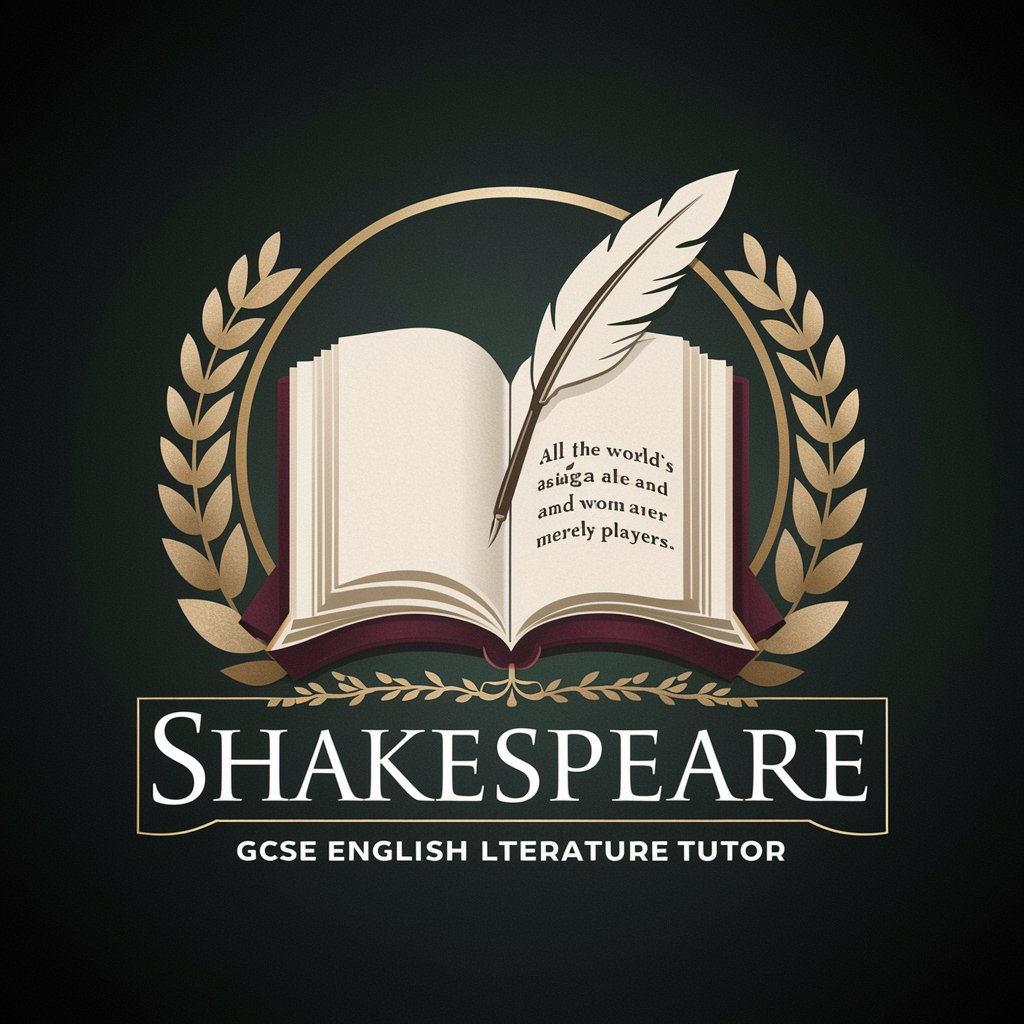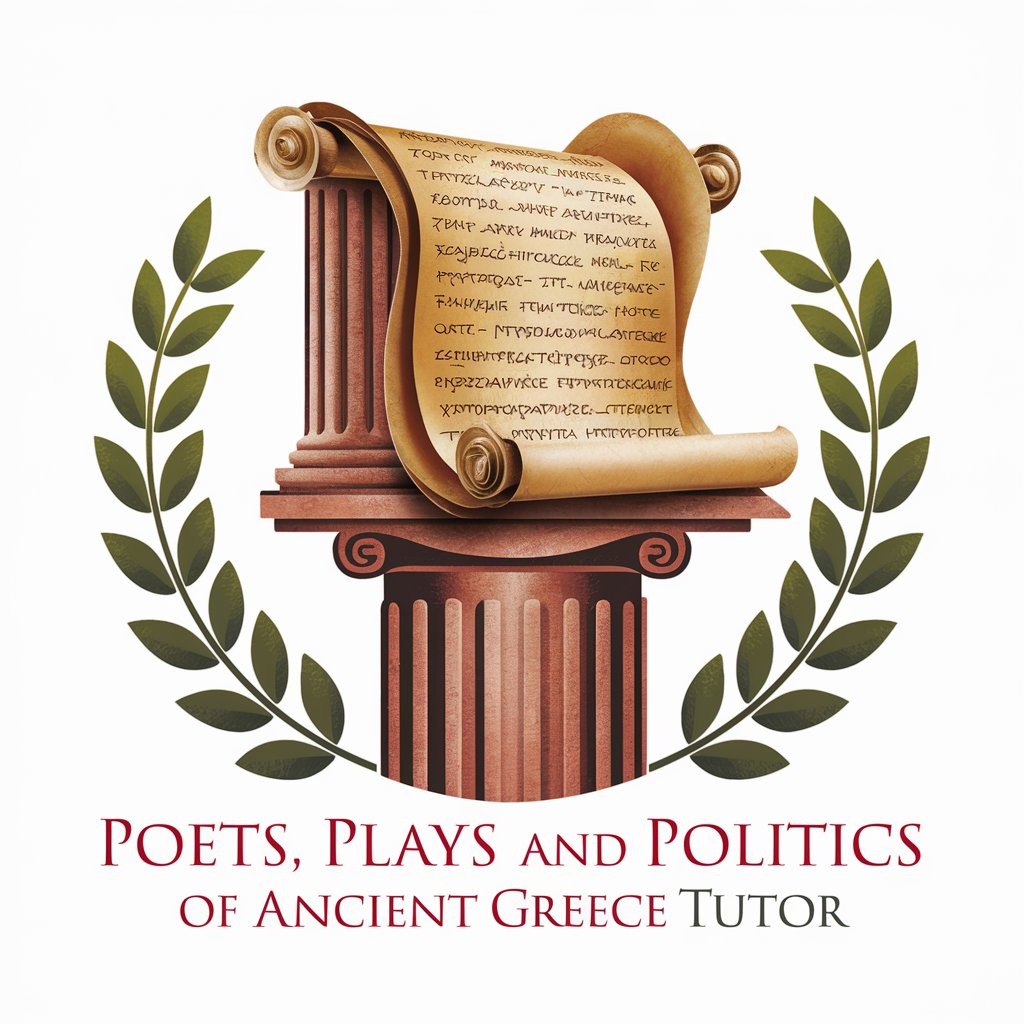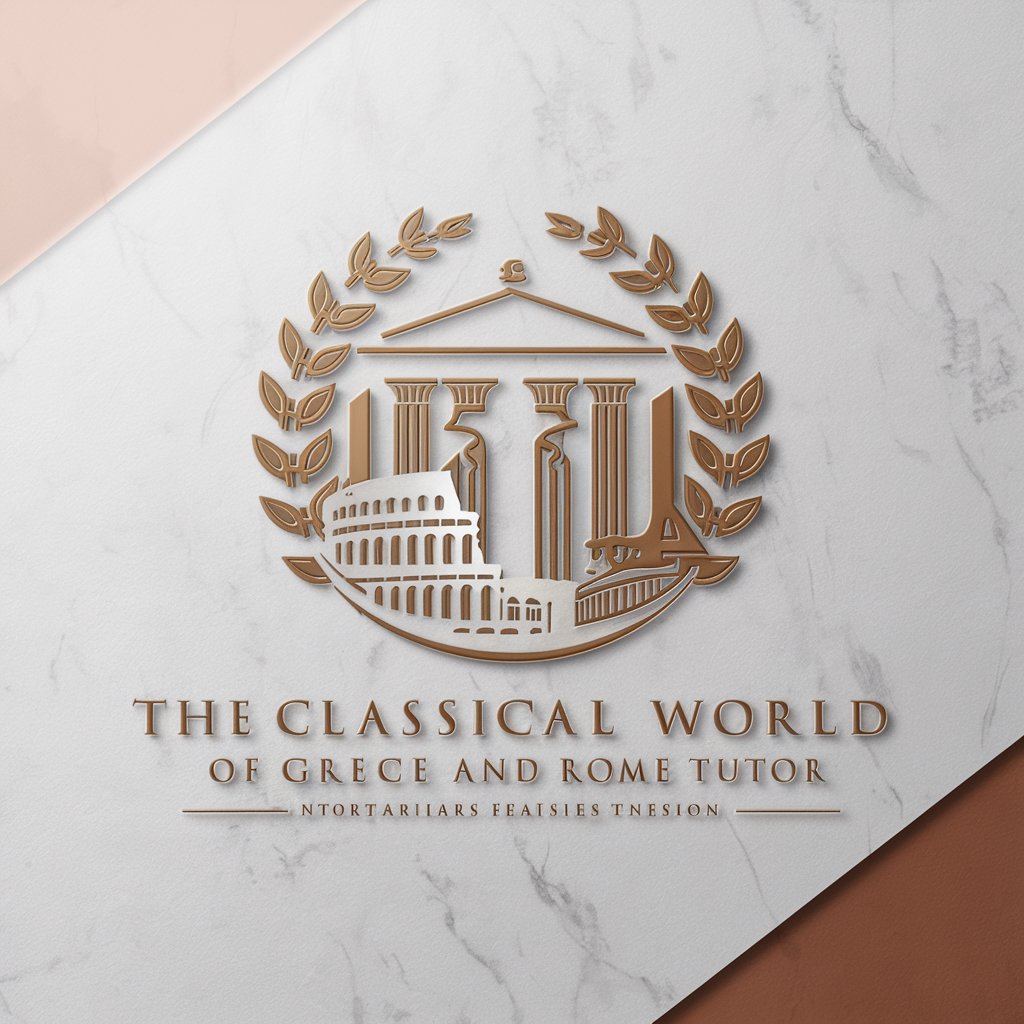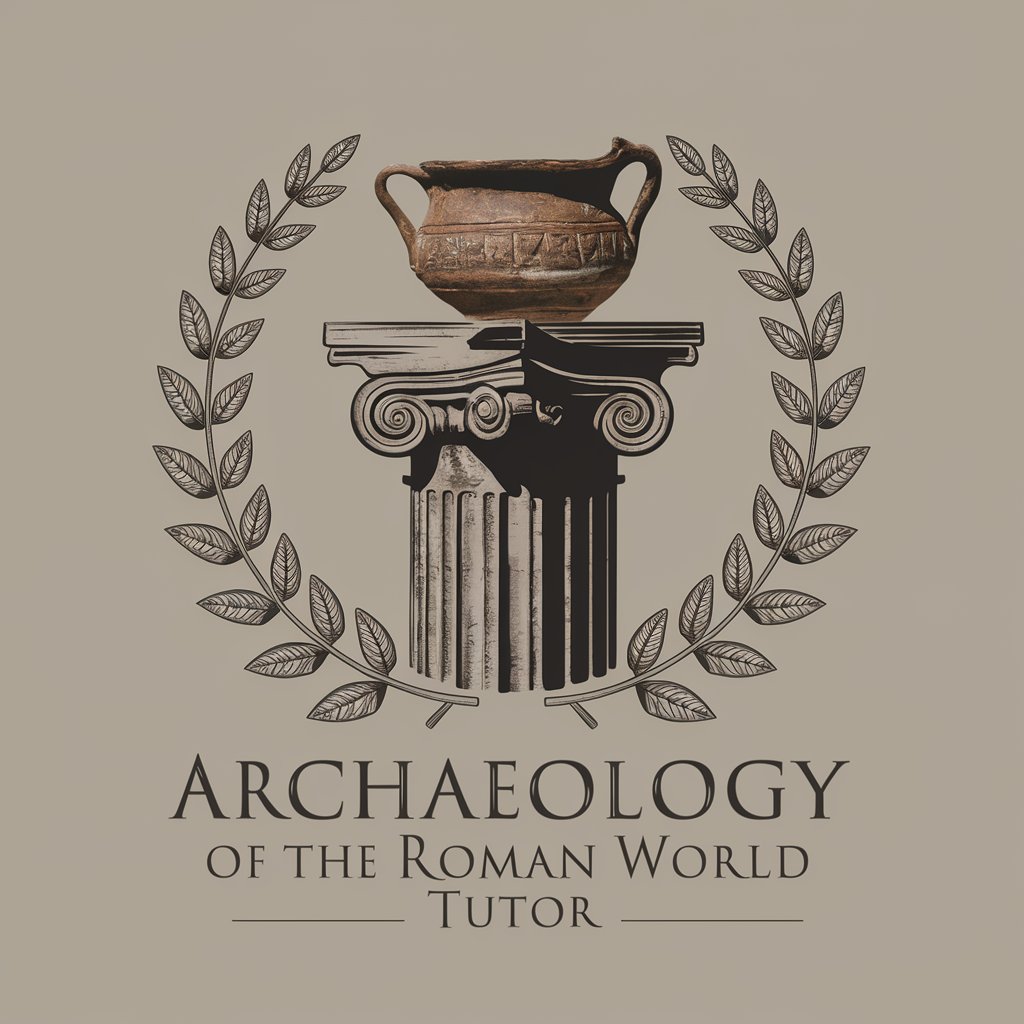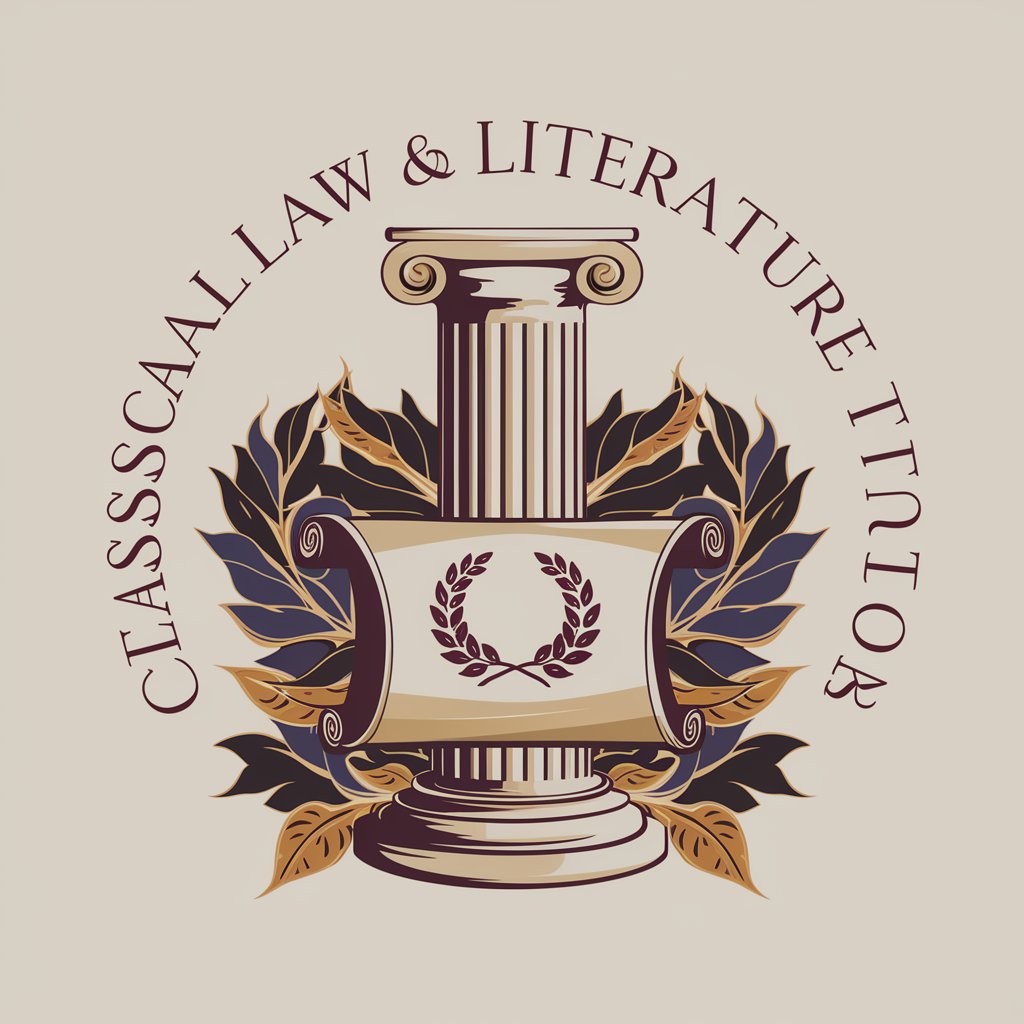
Poets, Plays and Politics of Ancient Rome Tutor - Ancient Rome Learning Companion
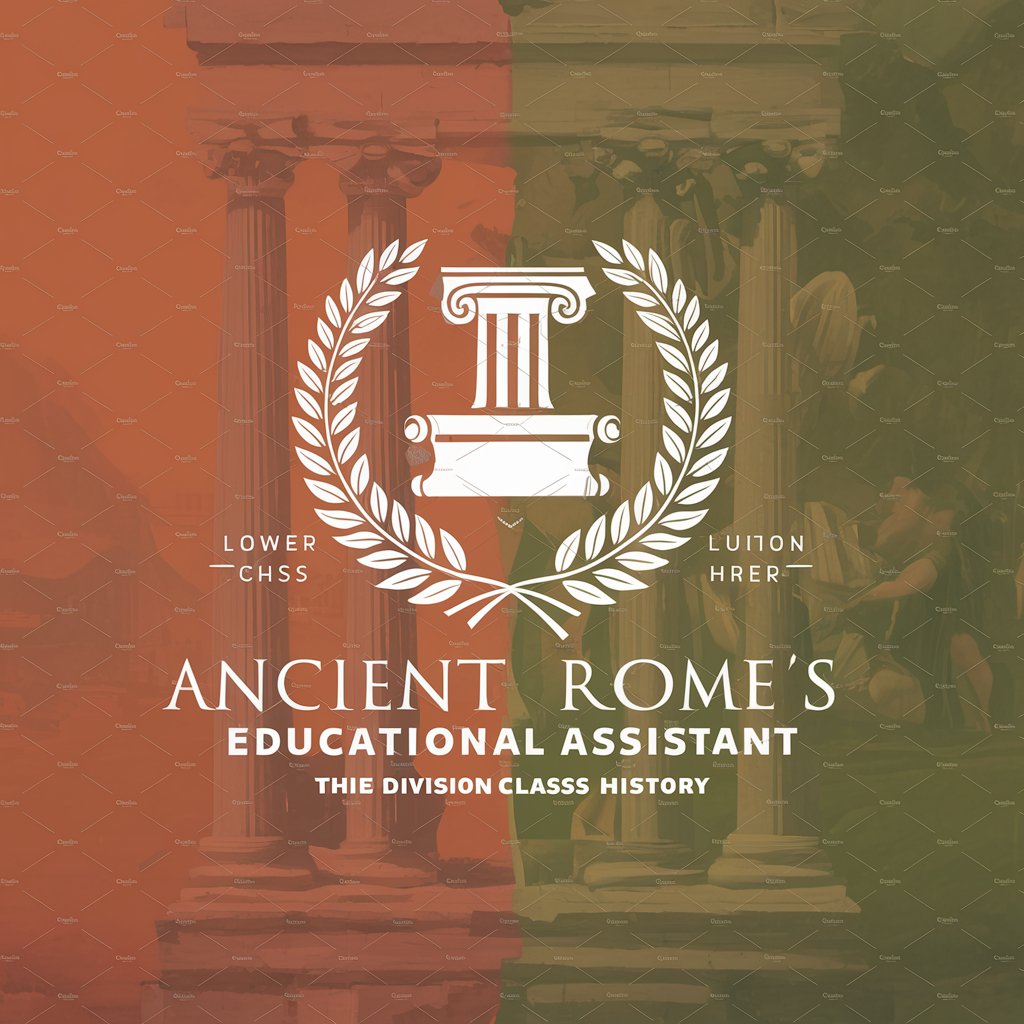
Hello! Let's explore the fascinating world of Ancient Rome together.
Empower your Roman studies with AI.
Can you explain the significance of Plautus' plays in Roman culture?
What were the key political events during the reign of Augustus?
How did Virgil's Aeneid reflect Roman values and beliefs?
What role did literature play in shaping Roman society?
Get Embed Code
Overview of Poets, Plays, and Politics of Ancient Rome Tutor
Poets, Plays, and Politics of Ancient Rome Tutor is designed as an educational assistant focused on the literature and history of Ancient Rome, from around 200 BC to AD 450. Its purpose is to facilitate learning about the rich cultural and political backdrop of this era, through the lens of its most influential literary works and the historical context in which they were created. This GPT specializes in breaking down complex themes, characters, and political dynamics of Ancient Rome into understandable segments, catering to lower division classes. For example, it can elucidate the significance of Virgil's 'Aeneid' in Roman society and its reflection of Augustan politics, or explain the comedic elements in Plautus's plays and their commentary on Roman life. Powered by ChatGPT-4o。

Core Functions and Real-World Applications
Literary Analysis
Example
Examining the thematic depth of 'The Aeneid' by Virgil, focusing on its portrayal of piety and the destiny of Rome.
Scenario
A student working on an essay about Roman values in literature uses this function to gain insights into Virgil's influence on Roman identity and nationalism.
Historical Contextualization
Example
Explaining the political climate during the reign of Julius Caesar and its impact on the works of Cicero.
Scenario
A history class discussion on the fall of the Roman Republic utilizes this function to understand the complex interplay between politics and literature.
Comparative Studies
Example
Comparing the themes of power and corruption in the plays of Seneca and the historical accounts of Tacitus.
Scenario
A comparative literature student uses this function to explore the consistency of thematic expression across different genres in Roman literature.
Target User Groups
Undergraduate Students
Students enrolled in lower division classics, history, or literature courses seeking a deeper understanding of Ancient Roman culture, politics, and literature. They benefit from personalized explanations and analyses to support their coursework and develop critical thinking.
High School Students
Advanced level high school students interested in early European history or classical studies, who are looking for resources to supplement their school curriculum or prepare for college-level courses. The tool's simplified explanations make complex historical and literary concepts more accessible.
Educators
Teachers and professors who specialize in ancient history, classics, or literature, seeking to enrich their curriculum with detailed analyses and discussions on Roman culture and politics. This tool can provide them with additional insights and teaching materials.

How to Use Poets, Plays and Politics of Ancient Rome Tutor
1
Access our platform at yeschat.ai for a complimentary experience, with no requirement for ChatGPT Plus or initial login.
2
Choose the Ancient Rome Tutor option from the main menu to start your learning session focused on Roman literature and history.
3
Type your question or topic of interest related to poets, plays, or politics of Ancient Rome directly into the chat interface.
4
Utilize the 'Clarify' feature if you need to refine your question or seek more specific information on a broad topic.
5
Review the resources and references provided for deeper insights and further reading on your topics of interest.
Try other advanced and practical GPTs
Assessor Valorant
Elevate Your Valorant Game with AI

Beer
Empower Your Strategy with AI Insights

Lost my Crypto in a boating accident
Empowering your crypto journey with AI.

要約 AI
Streamline Your Reading with AI-Powered Summaries

Horticulture GPT
Cultivate your garden with AI

Hashtag Ins tagram
Elevate Your Social Media with AI-Generated Hashtags

Motivational Coach
Empower your potential with AI-driven motivation

【AIディベート対決】論理学者斎藤さん
Hone Your Argument Skills Against AI

Image to Blog Post
Transforming Images into Engaging Blog Posts

Teacher's Pet: High School Edition
Empowering Students with AI-Powered Learning

Tarkov Sherpa
AI-powered Tarkov Strategy Guide

Thesis meaning?
Refining Your Research with AI

Frequently Asked Questions about Poets, Plays and Politics of Ancient Rome Tutor
What topics can I explore with this tool?
You can explore a wide range of subjects including Roman poetry, drama, and the political environment from 200 BC to AD 450, covering authors from Plautus to Augustine.
How can this tool help me with academic research?
It provides detailed explanations, historical context, and references to primary and secondary sources, aiding in the development of research papers or assignments.
Can I get help understanding specific Latin texts?
Yes, the tool offers translations and interpretations of Latin texts, helping you grasp the nuances of Roman literary works.
Is this tool suitable for beginners?
Absolutely, it's designed to make the complex history and literature of Ancient Rome accessible to beginners, with explanations in simple language.
How often is the information updated?
The underlying database is periodically reviewed for accuracy and updated with new research findings in the field of Roman studies.

